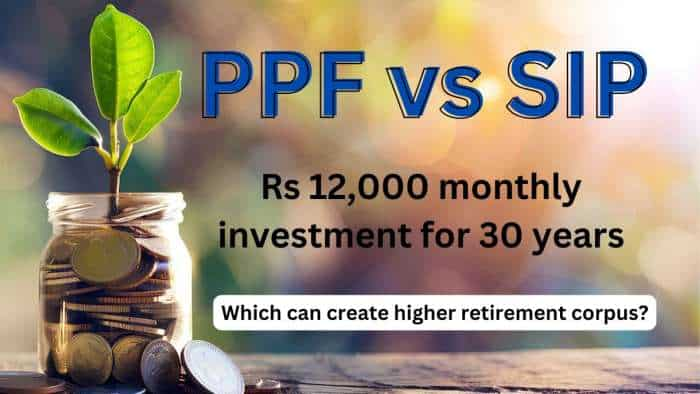Bank of England leaves benchmark interest rates unchanged at 15-year high
Despite publishing forecasts which show the British economy skirting close to a recession and flat-lining in the coming years, the BoE held Bank Rate at 5.25% for the second meeting in a row after 14 back-to-back increases.
)
The Bank of England held interest rates at a 15-year peak on Thursday and said it did not expect to cut them any time soon as it fights to "squeeze out of the system" the highest inflation of the world's big rich economies.
Despite publishing forecasts which show the British economy skirting close to a recession and flat-lining in the coming years, the BoE held Bank Rate at 5.25% for the second meeting in a row after 14 back-to-back increases.
It also reinforced its message that borrowing costs were set to stay high - sending the pound modestly higher against the euro and dollar - even though only about half of the impact of its long run of rate hikes has been felt in the economy so far.
The Monetary Policy Committee (MPC) voted 6-3 to keep the benchmark rate on hold, in line with expectations in a Reuters poll of economists.
"The MPC's latest projections indicate that monetary policy is likely to need to be restrictive for an extended period of time," the BoE said, adding that further tightening would be required if inflationary pressures persisted. In September, the British central bank had said rates would need to remain "sufficiently restrictive for sufficiently long."
Governor Andrew Bailey also tried to hammer home the message that inflation's fall over the past year from its highest since the 1980s, and the weaker economic outlook, should not be seen as a sign that rate cuts might soon be on the table.
"We will be watching closely to see if further increases in interest rates are needed," he told a press conference. "But even if they are not needed, it is much too early to be thinking about rate cuts."
"Let me be clear, there is absolutely no room for complacency. Inflation is still too high," Bailey said. "We will keep interest rates high enough for long enough to make sure we get inflation all the way back to the 2% target." The bank would keep monetary policy restrictive only for long enough to "squeeze inflation out of the system", however.
The decision to keep rates on hold echoed recent moves by the European Central Bank and the U.S. Federal Reserve. They are also waiting to see if their strong dose of rate hike medicine will curb the world's worst outbreak of inflation in decades.
"The MPC opts for a hawkish hold," said Yael Selfin, chief economist at KPMG UK. "We expect the Bank will look to ease policy towards the latter part of next year."
Bailey acknowledged the conflict in the Middle East created a risk of higher energy prices that could feed through into inflation, but said that had not happened so far.
MPC members Megan Greene, Jonathan Haskel and Catherine Mann voted to raise rates to 5.5%. Sarah Breeden voted to keep rates on hold at her first meeting as an MPC member since replacing Jon Cunliffe.
The BoE has said it is determined to stamp out the risk of a damaging spiral of higher pay and prices. Although inflation has fallen from 11.1% just over a year ago to 6.7% in the most recent data, it remains more than three times the BoE's 2% target.
The central bank said it now expected Britain's economy to have flat-lined in the July-September period and to grow by just 0.1% in the fourth quarter, with zero growth forecast for 2024 and an expansion of just 0.25% in 2025.
But even so, inflation would only return to 2% at end of 2025, roughly six months later than previously forecast. Investors think the BoE has reached the end of its run of rate hikes, given the risk of a recession.
In the run-up to Thursday's announcement they were betting the BoE would keep interest rates on hold until at least August next year, when it would probably start to cut them.
The BoE showed no sign that it was challenging those expectations: its forecasts on Thursday showed that, based on the market's pricing for Bank Rate in the future, inflation would fall to its 2% target in two years' time.
The slowdown in the economy and the fading impact of last year's gas price surge is likely to mean inflation resumes its fall soon. The BoE said it was likely to drop to 4.8% in October, almost two full points lower than in September.
But the BoE is still keeping a close eye on strong wage growth which it fears could keep a flame under inflation.
The central bank said there were "increasing uncertainties" about official data on the labour market, which has been hampered by low survey response rates, but that jobs growth was likely to have been weaker than it previously thought and the worryingly strong growth in wages was expected to cool off.
The BoE forecast the unemployment rate would rise to 5% in two years' time from around 4.2% now, based on the market's path for interest rates. One detail in the BoE's otherwise downbeat assessment of the economy is likely to be welcomed by Prime Minister Rishi Sunak.
It predicted inflation of 4.6% in the fourth quarter of 2023 which would mean Sunak meets his pledge to voters to have price growth this year, ahead of a national election which is widely expected in 2024.
Get Latest Business News, Stock Market Updates and Videos; Check your tax outgo through Income Tax Calculator and save money through our Personal Finance coverage. Check Business Breaking News Live on Zee Business Twitter and Facebook. Subscribe on YouTube.
RECOMMENDED STORIES

Power of Rs 15,000 SIP: How long it will take to achieve Rs 7 crore corpus? See calculations to know

Largecap, Midcap Stocks To Buy: Analysts recommend buying L&T, Tata Motors, 3 other stocks for 2 weeks; check targets

SIP in Stocks For New Year 2025: Market guru Anil Singhvi recommends 1 largecap, 2 midcap scrips to buy in dips; note down targets
08:41 PM IST











 Bank of England keeps main interest rate on hold at 4.75% after inflation spike
Bank of England keeps main interest rate on hold at 4.75% after inflation spike UK inflation rises further above Bank of England's target in November
UK inflation rises further above Bank of England's target in November BoE cuts benchmark rate by 25 bps; all eyes on Fed
BoE cuts benchmark rate by 25 bps; all eyes on Fed Bank of England mulling first interest rate cut since early days of COVID-19 over 4 years ago
Bank of England mulling first interest rate cut since early days of COVID-19 over 4 years ago  Bank of England keeps main interest rate at 16-year high of 5.25% despite inflation fall
Bank of England keeps main interest rate at 16-year high of 5.25% despite inflation fall